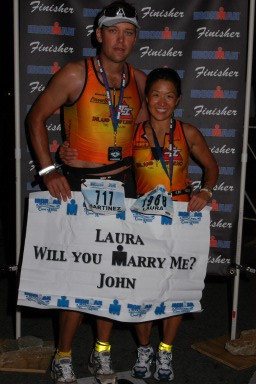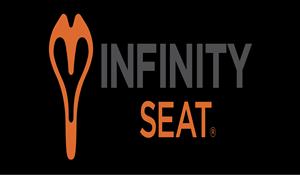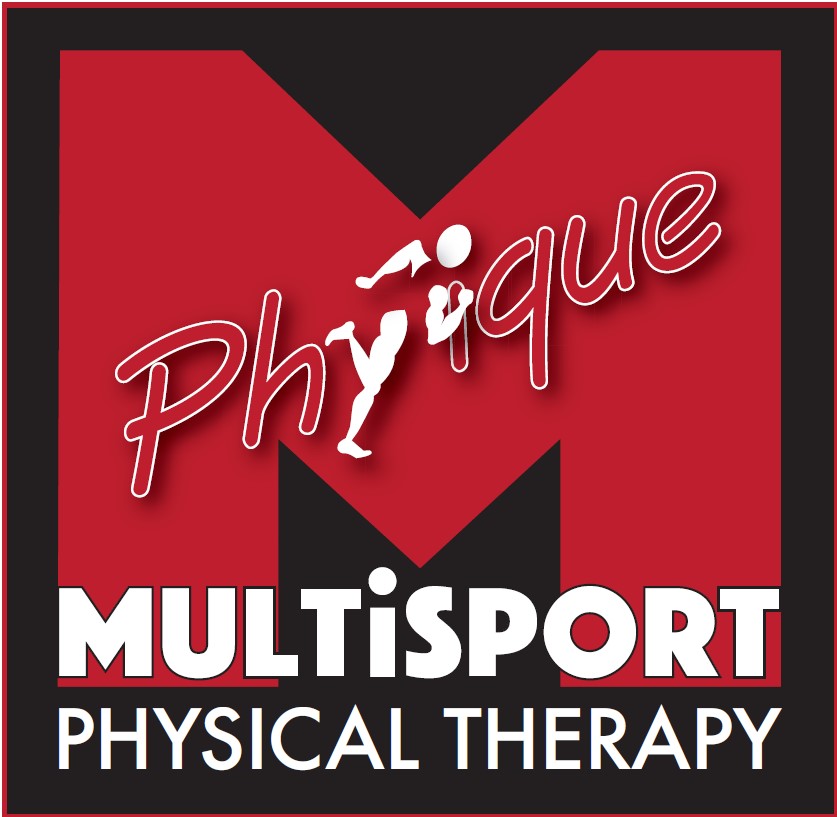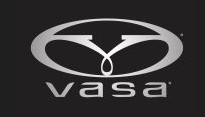Dr. John Martinez

I recently got to talk triathlon with the Tri Club's very own Dr. John Martinez of Coastal Sports & Wellness Medical Center. Please join me as we get to know this Ironman doctor.
Craig: What was your sports background prior to triathlon?
John: I was actually a decent soccer goalie as a kid. I actually made the All-County team and was the last goalie cut from our state (Mass.) traveling team. I managed to get recruited to play in high school for a prep school. I also played hockey, basketball, a year rowing on the crew team in high school with a lot less success. I finally burned out on soccer, so college was mostly pick-up ice hockey and a year of rugby. That year of rugby was the best training I've ever done for the start of an Ironman swim.
Craig: How did you get introduced to triathlon?
John: Dumb luck. I was trying to find some sport to do after college. I went in to the local bike shop in Clifton Park, NY and met Woody Freese, (who has done every single Lake Placid IM) who not only sold me a bike, but got me signed up for the local triathlon club.
Craig: What was your first triathlon like?
John: My first race was actually a duathlon - run/bike. I didn't have a clue how to pace myself, so I started pretty slow on the run but kept passing a lot of people along the way. Ended up on the podium (3rd) for Clydesdales, so I was hooked. My first triathlon was a little more intimidating. It was a sprint triathlon back in Massachusetts. The morning of the race, they had most of the beach roped off and only a 5 foot wide path from the water to T1. Why? Well, because Stone Temple Pilots had played a show on the beach the night before and there were broken beer bottles all over the beach. I was not a great swimmer, despite spending that summer as a windsurfing instructor, so I managed to finish somewhere in the middle of the pack, I was officially a "triathlete". I kept up the triathlon lifestyle through medical school, mostly for sanity and stress relief. I lucked out and my med school advisor for my last two years of med school was also a triathlete, so every time I had a rotation with him, we'd get in a workout!
Craig: What is the dumbest thing you've done in a triathlon or while training?
John: Where to begin? Not having a wetsuit for an early season race (early April) in upstate New York. I should have known better when I was one of one of only two guys without a wetsuit. Second clue should have been the icebergs and penguins out in the water. I was so cold coming out of the water that I couldn't open my hands to get my bike shoes on or clip into the pedals. Add a steep uphill (boat ramp) out of transition and the fact that I managed to tip over at the top of the ramp while still clipped in and you kind of get the picture...I looked like a turtle flipped over on its back because I couldn't unclip...
Craig: What Ironman races have you done or should I say which IM races have done you?
John: Ahh...First Ironman was Lake Placid in 2001. Did a repeat trip back to Lake Placid in 2002 as well as what was Ironman Utah its first year with the crazy wind storm during the swim. Also managed to snag a lottery slot for the "Big Dance" a.k.a. Kona in 2002. Followed by Ironman Coeur d’Alene in 2004, and Ironman Arizona and Ironman Wisconsin in 2005. I've also done a bunch of Half Ironmans - Vineman, California and Buffalo Springs in Texas.
Craig: Out of all the multisport races you have done in your career, which gave you the most pride?
John: Having the opportunity to race at Kona was thrilling, especially after spending the previous 3 years as part of their volunteer medical staff. Toughest race day conditions I've had between heat and humidity and just a crappy day in the nutrition department. I think I managed to get sick on almost every lava rock in the Energy Lab.
Craig: How did you meet your wife, Laura Sasaki?
John: We're a true triathlon couple. I met her standing in line to pick up race packets at the Oceanside Half Ironman. She wouldn't give me the time of day (or her phone number). Her side of the story is that her friend saw me first and Laura was trying to get me to talk to her friend...We managed to randomly meet again about 9 months later when she sent an email out to the Inland Inferno Tri Club, which we were both members of at the time, asking to borrow a bike case. I happened to be the first to respond, neither of us realizing who the other was until I dropped the bike case off.
Craig: How did you propose to Laura?
John: I proposed to her at the end of Ironman Coeur d’Alene in 2004 (we were both racing). I had been in contact with Tom Zeibart, the race announcer, and had a big banner made to hold up as we came to the finish line. I should have thought out having to carry the banner rolled up in a large fanny pack a little better. I was able to get down on one knee to propose. Getting back up took quite a bit of effort...We got married out in Kona later that year the night before Ironman.
Craig: Where did the idea for Coastal come from and when did the dream begin?
John: The idea for Coastal Sports and Wellness started back during my residency. I saw that a lot of active patients and athletes were frustrated by the current fragmented medical system. Many athletes were seeing a primary care doctor, a sports doctor, a physical therapist, and maybe a chiropractor and massage therapist, but there was very little communication between the groups. Patients were getting different information and instructions from each provider and there was a lot of frustration.
I was in Denver doing my residency and had a chance to spend some time at the Boulder Center for Sports Medicine. They had done a great job of integrating the sports medicine specialists together in one place. I knew I wanted to take that model and expand it to include primary care as well as others such as acupuncture and personal trainers to compliment the sports medicine, physical therapy and sports performance. Add the fact that I believe that a lot of chronic medical diseases from high blood pressure to diabetes are preventable or treatable with proper diet and exercise, and the dream was born. It’s been over a 10 year project! I think we're unique in the broad range of services that we offer.
Craig: Who can benefit from the facilities at Coastal? In other words, what does Coastal offer?
John: We're literally that "one-stop" medical center for athletes and active patients. At Coastal Sports and Wellness, we've worked hard to integrate and compliment each other’s strengths from primary care and family medicine to the sports medicine and therapy side as well as sports performance and testing. We offer regular family medicine visits as well as sports injury evaluations and physical therapy. We have a close relationship with Gino Cinco at University City Physical Therapy. Gino is hands-down the best physical therapist I've ever worked with. Our Sports Science and Performance Center helps patients and athletes progress back to their sport, with personal trainers and exercise science staff to help design a better post-rehab workout program. We work well with triathlon and running coaches as far as offering VO2max and blood lactate testing as well as running gait analysis. We even have former Ironman World Champion John Howard heading up our bike fit and Cycling Performance Center. We also offer indoor cycling classes on the Computrainers, and we're still the only center in Southern California to offer that.
I think that integrated model of primary care/sports medicine/sports performance is the hardest message to get across in today's medical environment - that you don't have to have a doctor that tells you "stop running" if your knee hurts, or have a therapist that gives you the same rehab exercises that they just gave to the 80 year old grandmother, or a personal trainer that doesn't think through what workouts are the best for your sport.
Craig: What are the 3 most common injuries you see triathletes get and how could they be prevented?
John: From a triathlete standpoint, most injuries are overuse injuries - too much training with too little recovery, with a few biomechanical issues thrown in. Iliotibial band syndrome is one of the big injuries. IT band issues usually have to do with weakness of the glutes and hip as they relate to controlling rotation of the hip and knee during running or cycling. So we spend a lot of time working on strengthening those muscles as well as helping the patient then learn proper biomechanics.
The second most common injury is probably rotator cuff or shoulder pain. Again, most of the injuries are biomechanical - poor swim mechanics, a previous injury which has left the shoulder relatively weak, etc. The third most common injury would be Achilles tendonitis or plantar fasciitis. Both are chronic injuries that usually come limping into the office the week before a big race, so it’s always a challenge to get the athlete race-ready on a short time frame. Rehab is usually again focused on identifying biomechanical issues - overpronation, muscle weakness further up in the kinetic chain, etc.
We actually have a bunch of our patient handouts on our website at http://coastalsportsmedicine.com under the Patient Info section that really go into more detail.
Craig: What is the extent of your involvement with USA Triathlon as well as your other sports related doctor gigs?
John: I've been part of the USA Triathlon medical staff since 2004 covering the age group teams (Team USA) that USA Triathlon sends to the ITU Triathlon World Championships. We usually have about 100 to 150 US athletes and travel with a medical staff of 2 medical doctors, 2 chiropractors as well as massage therapists. I've been to Portugal, Denmark, Australia and Honolulu as one of the USA Triathlon staff doctors. It’s fun, but a lot of work. It’s amazing the number of medical issues and sports injuries that crop up the week of a big race!
This year I was one of just four medical doctors picked to travel with the USA Triathlon elite teams to the ITU Triathlon World Championship Series races. These are the triathletes that are competing for a spot on the 2012 US Olympic Triathlon team. We rotate the medical coverage between the four docs. It’s a much smaller team, but because of the level that these triathletes are racing at, there are still a lot of medical issues that come up. This year I was the USA Triathlon staff doctor for the teams traveling to Madrid, Spain and Kitzbuhel, Austria. It’s a lot of travel for a short event - usually leave Tuesday to arrive in Europe on Wednesday for a Saturday race, and then back on the plane early the next morning to come back home to San Diego. Despite the great locations, there isn't a lot of sight-seeing going on!
I've also been part of the medical staff for the Hawaiian Ironman since 1999. It’s a great time every year and we end up caring for almost 300 triathletes in the medical tent every October. You end up taking care of some of the same triathletes year after year. I even have one triathlete's mother that emails every October to make sure I'll be out there to take care of her son. She even sends a Christmas card!
Locally, I'm also medical director for the Carlsbad Marathon. It’s a fun and low-key race on a beautiful course. I've covered local high schools for football and other sports, but finding it difficult to find the time to continue that coverage currently.
Craig: What are your future triathlon goals?
John: Hmm...I'll start with trying to find my triathlon bike in the garage... Honestly, I’m finally starting to miss training and racing, especially like most TCSD members, it’s been a big part of who I am. I’m starting to get back on the bike and I finally took my running shoes back from my dog that likes to collect and hide them. Rumor has it that Bobbi Solomon is stalking me about getting down to La Jolla to swim one of these days, so I'll be back racing in 2010.
Professionally, I'd love to continue the ITU Triathlon team coverage as well as time in the medical tent at Kona. I'm supposed to be spending some time at the Olympic Training Center in the near future as part of the process of qualifying as a doctor for one of the Summer and Winter Olympics, so at some point in the distant future, one goal is being part of the US Olympic Team medical staff, hopefully for triathlons.
Craig: John, thank you for sharing your story. The TCSD, the San Diego community, USA Triathlon and many other groups are lucky to be associated with you. Good luck finding that tri bike. I’m certain you will achieve that and all your other goals.
Dr. John Martinez can be reached at 858-678-0300 or via http://coastalsportsmedicine.com. Craig can be reached for your coaching needs at 760-214-0055 or tricraigz@yahoo.com. Craig offers free summary training plans at http://www.triclubsandiego.org/training/plans , daily detailed plans at http://www.trainingpeaks.com/CraigZelentPlans as well as personalized coaching services.








